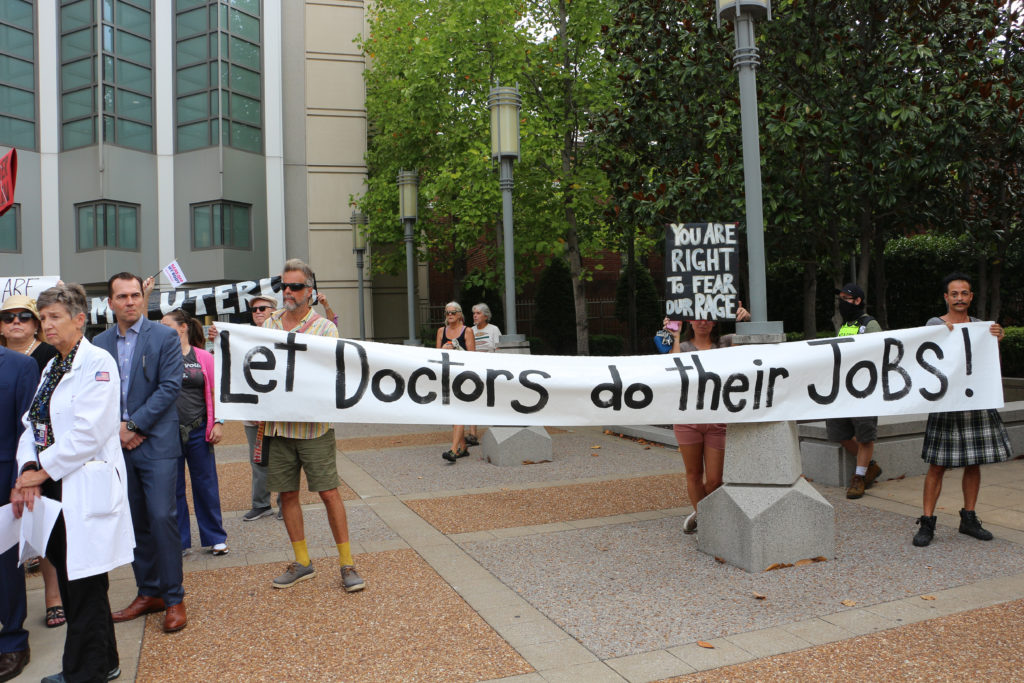
Lawyers in Tennessee are in uncharted waters when it comes to defending medical providers from the state’s new abortion law. A new nonprofit is working to prepare them for legal fights ahead.
Tennessee’s new law bans all abortions, with a narrow legal defense for the life of the pregnant person. The law does not expose a patient getting an abortion to criminal charges. Instead, it places medical providers who perform abortions at risk.
Already there are reports of delayed care, as doctors scramble to contact attorneys. But their usual lawyers are more accustomed to defending them against malpractice suits, rather than criminal charges.
Yesterday, someone I love needed life saving surgery for an ectopic pregnancy in Nashville. She waited hours at one of our major hospitals so the doctors could talk to lawyers & confirm that they could, in fact, save her life. /1
— Quin Evans Segall (@quinevanssegall) September 2, 2022
That’s prompting lawyers to team up and prepare the best ways to defend these cases.
“The health care lawyers, with the expertise and regulatory compliance, will need to join with the criminal defense lawyers, who’ve been litigating in state court, who will need to join with the constitutional law experts who’ve been fighting the fights for many years in federal court,” says Tyler Yarbro, an attorney and president of a new nonprofit called the Tennessee Freedom Circle.
The group held its first training last week to connect all these different attorneys and educate them about the ins and outs of the law.
“This training is the beginning of the efforts of the Tennessee Freedom Circle to connect and prepare lawyers for this work,” Yarbro says.
Part of that is navigating the affirmative defense, which allows medical providers to justify why an abortion was necessary, but only after being charged with a felony. That means prosecutors would have the latitude to charge medical providers, and the defense would have to show their actions were justified.
The conservative lawyer who drafted the law describes it as “a very narrow defense that applies only in very narrow circumstances.” Attorneys who oppose the law agree, and they say it could force doctors to delay urgent medical care while they assess whether they want to run the risk of facing up to 15 years in prison.
Tennessee’s new law is most similar to Idaho’s — which was challenged by the U.S. Department of Justice. But experts say Tennessee’s law would be hard to overturn.

